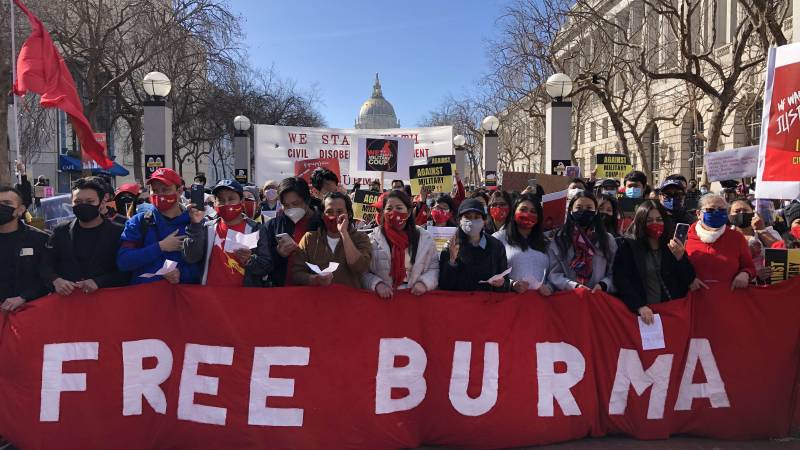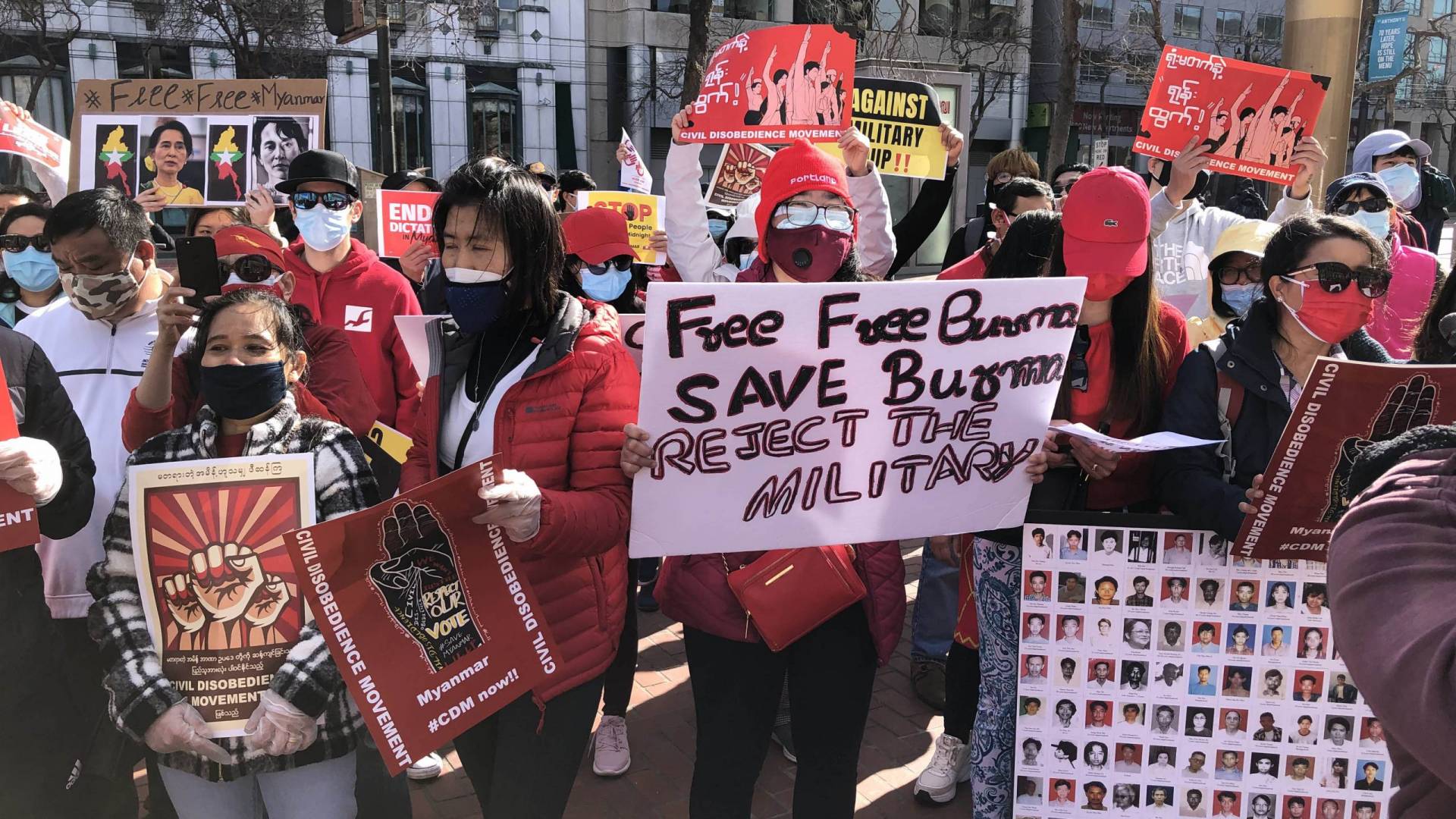A doctor Human Rights Watch spoke with said Mya Thwe Thwe Khine had a projectile consistent with live ammunition lodged in her head, that she remained in critical condition on Feb. 9.
Aung, who now lives in the East Bay, said some people in the Bay Area may not realize the things they take for granted, like water and electricity.
“Over here, for the people who live and grew up here, we do take these things for granted,” she said.
She doesn’t want to see Myanmar return to how it was when she was young — with a lack of access to basic necessities under a military dictatorship. She wants the world to see what is happening in Myanmar — so she’s been attending the protests in San Francisco with the hope that others will speak up and take action.
Economic Sanctions by the Biden Administration
On the national level, the Biden administration has imposed sanctions on 10 current and retired top-ranking leaders in Myanmar’s military.
In a statement issued Feb. 11, the Treasury Department announced it was freezing U.S.-based assets belonging to the sanctioned individuals. The list includes six members of the newly installed junta, including its head, Senior Gen. Min Aung Hlaing, and his deputy, Soe Win. Hlaing was already on a U.S. sanctions list from 2019, when he was targeted for the army’s brutal crackdown on Rohingya Muslims in the country’s western Rakhine state.
The Feb. 1 coup came in response to elections that easily returned Suu Kyi and her National League for Democracy to power — defeating the military. After taking power, Min Aung Hlaing ordered the arrest of Suu Kyi, who held the title of state counselor, as well as President U Win Myint.
Noting that President Biden had called the coup “a direct assault on Burma’s transition to democracy and the rule of law,” Treasury Secretary Janet Yellen said in the statement that the department “stands with the people of Burma — and we are doing what we must to help them in their effort to secure freedom and democracy.”
“We are also prepared to take additional action should Burma’s military not change course,” Yellen said. “If there is more violence against peaceful protestors, the Burmese military will find that today’s sanctions are just the first.”
Separately, the U.S. Agency for International Development announced that it was “immediately redirecting $42.4 million of assistance away from work that would have benefited the Government of Burma. Rather than supporting the military, we will redirect these funds to support and strengthen civil society.”
“The people of Burma are making their voices heard, and the world is watching,” Biden said. “We’ll be ready to impose additional measures, and we’ll continue to work with our international partners to urge other nations to join us in these efforts.”
The military takeover has sparked the biggest protests in Myanmar since the 2007 “Saffron Revolution” that helped lay the groundwork for Suu Kyi’s eventual 2015 election victory after spending 15 years under house arrest at the hands of a previous junta.
In a separate statement on Feb. 11, the State Department said the sanctions “specifically target current or former members of the military who played a leading role in the overthrow of Burma’s democratically-elected government.”
“They do not target the economy or people of Burma, and we have gone to great lengths to ensure we do not add to the humanitarian plight of the Burmese people,” the department said.
This story includes reporting from NPR’s Scott Neuman.

